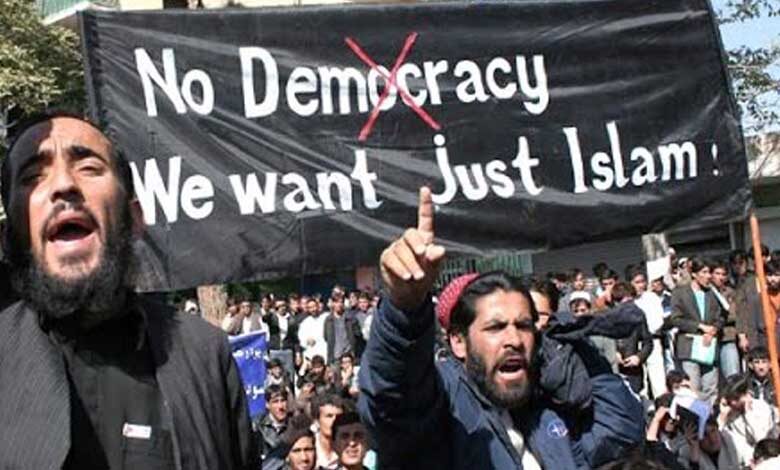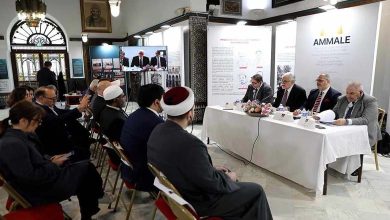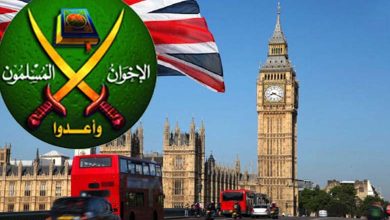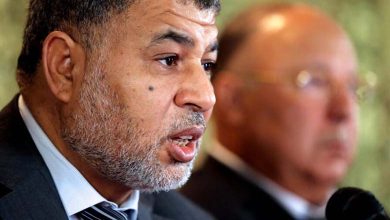Europe uproots Muslim Brotherhood… Actions by several countries to combat terrorism

In conjunction with unprecedented restrictions on the group’s activity in Europe, the Brotherhood has been dealt a new blow in Austria since mid-last year and intensified after the European Union passed a new counter-terrorism and counter-extremism law.
Observers believe that successive European steps against the Brotherhood and terrorist organizations will intensify the organization’s current crises, especially since it relied on several countries as a safe haven for its activities and investments, all within Europe. In addition, the European embargo coincides with an unprecedented restriction on the group’s activities in Turkey, which has paralyzed the organization and prevented it from carrying out any activities.
The Muslim Brotherhood has planned for decades to control several areas in Europe and between Arab and Muslim communities, said Shiyar Khalil, a writer specializing in political Islam. This is done through religious and educational centers to spread extremism among Muslims and Arabs, he said.
In a statement to Sky News Arabia, Khalil explained that these activities, due to the leniency of European governments with them, have spread widely and shed light on their extremist agendas. Thus, many governments have imposed security control on them, in addition to closing down several centers and societies in Britain and Europe that work to spread extremist and extremist ideology and contribute to the financing of terrorist organizations in Syria and Arab countries.
In the past decades, European governments granted general freedoms to those organizations and associations related to political Islam and the Brotherhood that were operating under the umbrella of political opposition bodies, Khalil said. However, it seems that they have realized – even belatedly – the seriousness of this ideology and associations in the growth of the phenomenon of extremism within their closed quarters and narrow circles, and in its connection with terrorist organizations outside Europe, and perhaps some of the events that took place in several European countries related to extremism.
The EU and through the Union itself are seeking to enact new laws that would impose strict controls on the movements of these groups, as well as imposing sanctions and bans on many individuals with ties or ties to political Islam organizations in the Middle East.
Khalil says that the threat of the Brotherhood in Europe day after day, due to the leniency of European laws and the fact that they were allowed to operate on a large scale in past decades, but the current vigilance of the security and intelligence services will help to reduce the activities and movements of those organizations. However, the challenges will remain for those agencies, especially after the penetration of the Brotherhood into the Arab and Islamic societies in Europe and Britain, and the intensification of their efforts to attract the youth and the new generation.
All this is part of the awareness of European governments that the threat of terrorism is no longer an external threat, he said. Rather, it is an internal threat in Europe sponsored by regional and international entities and facilitated by the governments of these countries in dealing with religious associations and centers linked to the Brotherhood and political Islam organizations.
He continues: “For decades now, the Muslim Brotherhood has been seeking to establish parallel and closed societies in Europe whose main aim is to work against the existing democratic system and against public freedoms. This is an investment in Arab and Muslim environments in Europe and through these religious and educational centers. Hence the recent awakening of the European and British governments to impose new and severe sanctions and restrictions on the Brotherhood organization and political Islam organizations, and to ban some of their headquarters, in preparation for banning the Brotherhood in Europe and preventing them from carrying out their extremist activities which encourage terrorism and eliminate the democratic system in the country.”
On 6 May 2021, German authorities announced the banning of Ansar International for its involvement in funding terrorist organizations such as as “Hay’at Tahrir al-Sham” in Syria and the “Somali Youth Movement.”
The European Union adopts several criteria to classify organizations as terrorist organizations and to freeze the assets associated with them. The relevant bodies of the European Union prepare a register of individuals and organizations involved in terrorist acts and activities and freeze the assets of entities and individuals involved.
One of the most prominent of those criteria was the involvement of individuals or organizations in the sponsorship or financing of terrorism, the fact that the organization was foreign and had engaged in terrorist acts and activities, which constituted a threat to the security of the Federation.
On 7 May 2021, the German Parliament passed an amendment to the Law on Combatting Extremism and Hatred on the Internet, which allows the expansion of police and judicial powers to take too many and more decisive measures against any form of incitement.












